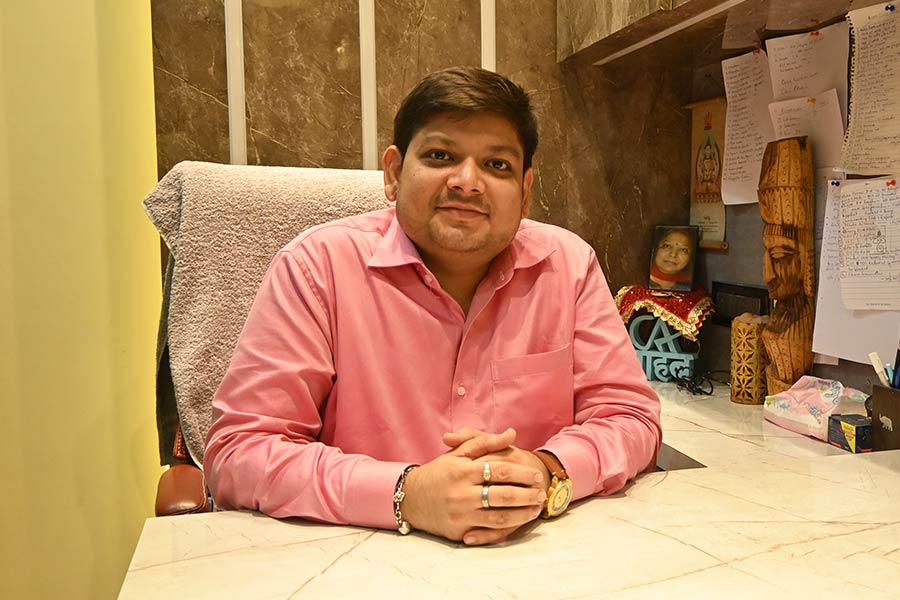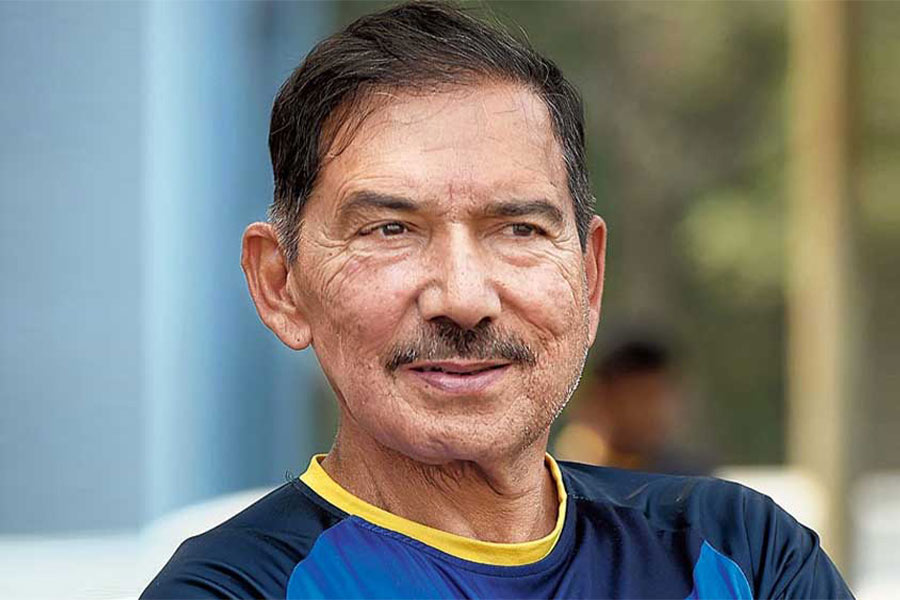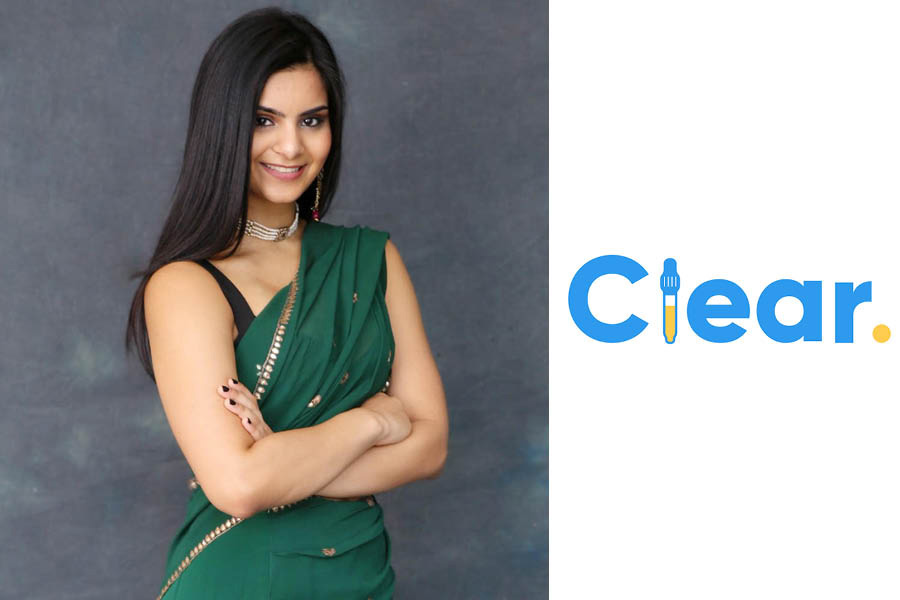The Chartered Accountancy exam takes a lot out of every student. For Hardick Bavishi, it became a question of life and death.
It is impossible to identify what is more admirable. The numerous health issues Hardick has beaten in his life, or the nonchalant smile with which he recounts them. My Kolkata brings you his story of resilience, that could give any Bolly biopic a run for its money.
Early setback
From birth, Hardick faced a slew of health issues. However, his parents were determined to instil confidence and self-sufficiency in him. This was evident in the various chores his mother made him do, from cooking to buying vegetables. By age eight, he was depositing cheques at his local bank near Mudiali.
Despite his fluctuating health, Hardick consistently topped exams at St. Thomas Boys’ School. When he was 17, a severe bout of dengue changed his life. “My doctor didn’t know I had dengue and kept experimenting with medications. The fever persisted for 17 days, and I had to be hospitalised. Blood tests revealed that due to excessive medication, both my kidneys had stopped working. I was a boy about to write my board exams and was told I needed dialysis,” he said.
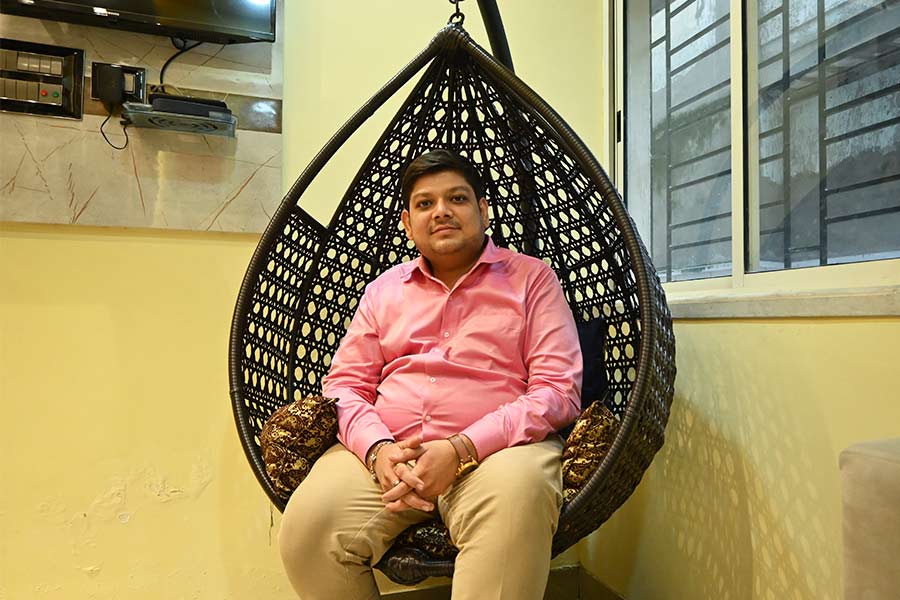
Despite his fluctuating health, Hardick consistently topped exams at St. Thomas Boys’ School
Luckily, the kidney failure wasn’t chronic. His parents decided to wait for a week, during which the kidneys recovered by 10%. That was enough for him to return home. “The doctors warned that despite maintaining a healthy lifestyle, I could need dialysis or a kidney transplant at any moment,” he added.
In order to simply survive, Hardick could not consume more than half a litre of water a day and just about 2gm of salt. He wasn’t permitted to have anything with oil and was just allowed three green vegetables. To combat this, he began swallowing his medicines without water. “To this day, I take 20 capsules every day, without water,” Hardick rued.
Although this lifestyle kept him alive, it took a heavy toll on his health. By the time he entered The Bhawanipur Education Society College, his weight had dropped to 44 kg. At 18, he couldn’t grow facial hair, and his frame was so lean that many mistook him for a 13-year-old. “My immunity was so low that just going out in the sun could give me a fever,” he added.
Finding Purpose
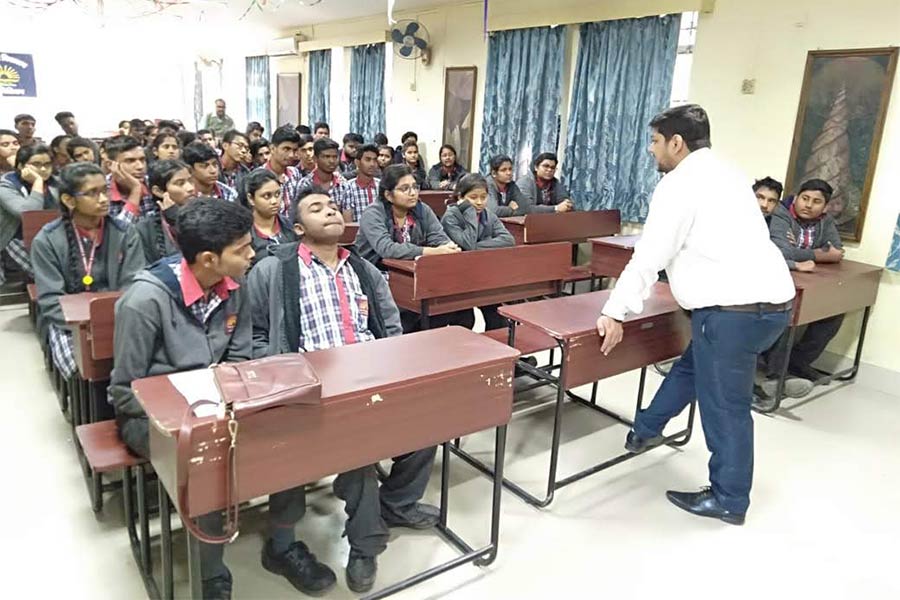
Hardick giving lecture in a classroom
During this time, his father encouraged him to trust himself and study. Ironically, it was being late to college that shaped his destiny. “One day, I arrived late and was requesting the guard to let me in. Another latecomer appeared by my side, making the same plea. We started talking, and he told me that he got late because he was filling out the CA form.” His dad’s words rang in his mind, and Hardick exchanged numbers with the boy. The next day, he told his parents about his desire to become a Chartered Accountant. Expectedly, his mother panicked. His father calmed her down and asked Hardick to fill the form. “For every challenge, my father always said, ‘What’s the worst that will happen? You’ll fail? You’re at a point where you can’t lose anything more. So, give it a try’,” Hardick recalled.
Hardick cleared the CA entrance with distinction. However, he woke up every morning feeling weaker. Living under constant restrictions had also started taking a mental toll on him, and he frequently found himself breaking into tears. “Every Diwali, I couldn’t enjoy sweets with the rest of the family and had to eat separately. I would see my friends going out, making girlfriends and eating tasty snacks. Meanwhile, I had to go everywhere with an umbrella. I couldn’t even drink water outside. People started ragging me, but I couldn’t tell anyone about my problems. I didn’t want them to see me with sympathy. It felt like my freedom to live had been taken away,” he rued. Apart from his mental health, his physical health was also faltering. He was again on the verge of dialysis. By the time Hardick started his articleship, he needed to hold someone’s hand just to cross the road.
It was his mom who became his source of strength at this time. “At least 20 times a day, she would reassure me that I would come out of this situation soon. Multiple internet searches had told me that this wouldn’t get better. But I trusted my mother more than the internet,” he said. She also taught him the spirit of acceptance. “Suffering gives you two options. You either keep questioning why it happened or you accept it and move forward.” But faith wasn’t done testing him yet.
The year Hardick started his articleship, his mother fell unconscious. Upon admitting her to the hospital, the family found that her sugar was 672, and she lost both her kidneys. The doctors insisted on starting her dialysis too, but she refused. “My world turned upside down, because I knew exactly what she was going through.” Soon, the excessive water in her body added almost 20kgs to her weight. At that point, his mother provided him with important learning, which he follows even today. “Mom asked me not to be sad, adding that what both of us were suffering from was a result of our own karma. Instead, we needed to be grateful that our body was still working,” he recounted.
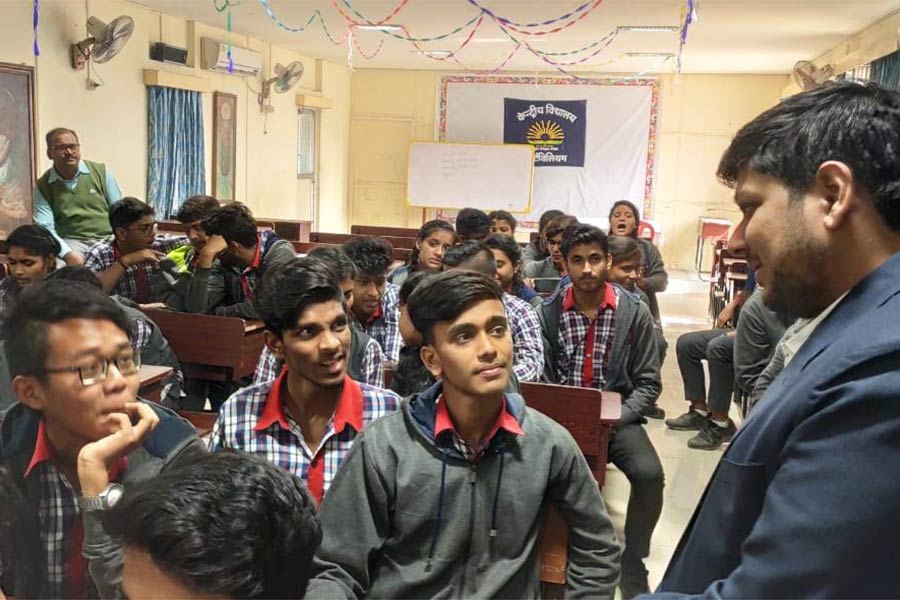
Hardick interacting with his students
For a boy of barely 20, Hardick was now looking after his college, his articleship, himself, and his mother. Problems compounded for the Bavishis, as the medical expenses rose to almost Rs 60,000 every month. “Due to a family separation, my father also accrued debt worth crores. Finally, it got too much, and we went bankrupt,” he added.
Bhawanipur College awarded Hardick a scholarship, but he couldn’t afford CA tuitions or get help from friends with notes. Undeterred, he contacted relatives who had passed out and even asked scrap collectors for any old CA books they found. However, reading the right books couldn’t replace the practical knowledge imparted in tuitions.“The Practical Section accounts for 40 per cent of the exams, and you need 40 per cent to pass. I decided to mug up the theory so well that it would compensate entirely for practicals. When the IPCC results arrived, I had again cleared with a distinction,” he said.
Escalating crisis
But with Hardick, there was rarely ever time to celebrate. His kidneys continued deteriorating, leading to a stomach infection. His usual doctor wasn’t in Kolkata, and the antibiotics given by the interim doctor caused further kidney damage. “Dialysis is normally done when your creatinine crosses 7. Mine was at 13. The 10 per cent recovery my kidneys had managed so far was also lost,” he added sadly.The family decided to wait for two more days before beginning dialysis and brought him back home. The next morning, he had a brain stroke.
His mother burst into tears, fearing the worst. Upon admitting him, doctors assured her that there was hope. After years of playing cat and mouse, Hardick was finally put on dialysis.
His voice has a slight tremble when he remembers every painful dialysis session, where six litres of water was extracted from his body. “While going to the hospital, I couldn’t button up my pants. Upon returning, I had to tie a rope around them. That’s how much my body would shrink.” After six months of dialysis, his uncle’s friend saw his pain, and offered to donate him his kidney for a transplant.
However, kidney transplants aren’t so simple. “The kidney has to be a perfect match, because the body has a tendency to reject and completely destroy any foreign organ. Moreover, there is no guarantee how long the new kidney will work for. It can last you 40 years, or even four hours,” he said. After the doctor’s go-ahead, an operation date was fixed. The massive expense of the procedure prodded his father to sell their ancestral property in Gujarat.
“Three days before the operation, I felt feverish. When the fever refused to come down, we did a CT scan and found that it was tuberculosis,” he added. This threatened to push the operation by six months, but somehow Hardick recovered miraculously fast. A month later, the doctor decided to risk it and do the transplant because his body was crumbling under dialysis.
Getting the transplant was the easy part. Recovery proved to be a bigger test. “After the transplant, I had to be alone in a single room for six months. Because of my low immunity, I couldn’t risk meeting anyone. With the CA final exams also six months away, my father suggested utilising this time to study.”
Two months passed, and Hardick’s preparations were in full swing. Things were gradually returning to normal. One morning, he woke up and faced some difficulty in reading. Within four days, he had lost half of his vision. His steroids had led to cataracts developing in both eyes.
“The doctors advised surgery, but if I did it, I wouldn’t be able to study for a month. So I decided to postpone it until after my exams. For the next four months, I would stand on my bed near the tubelight and throw a torch on my book, just so that I could see the alphabets,” he said. While this routine didn’t lead to him clearing the exam, it provided him the rigour he needed. “I got operated on and gave the exam again, six months later. I cleared it by seven marks, and felt like I had achieved something significant for the first time in my life,” he said, smiling.
Finding fulfilment
For seven years afterward, Hardick worked in a Public Sector Undertaking in Park Street, heading taxation for 12 states in Eastern India. Every morning, he woke up with multiple health issues but refrained from telling anyone. He had seven LASIK surgeries, with the last one causing a permanent 20 percent loss of vision in his right eye. His bone density dropped to a level where walking sometimes led to fractures. Yet, he continued with a smile. The reason?
In 2018, his mother’s health deteriorated. “When the doctors told her that she didn’t have long, she smiled, replying that she had no regrets. She would watch movies every week, travelled the world with me in a wheelchair, and made me capable of living independently,” Hardick recalled fondly. Before the final goodbye, Hardick recorded videos of her answering life’s most important questions for him. “When I asked her what to do after her passing, she urged me to put as much love out as I could. She urged me to live not just for myself, but for humanity,” he added.
Over the next few days, her health recovered. Hardick felt that the worst was behind them, and deleted the video. Days later, she got a stroke and passed away. “I had lost my mother and her recording. It felt like life had come back to zero.” Three days later, he lost all the data from his work laptop while sending an email. The only thing the engineers could recover in it, was his mother’s video.
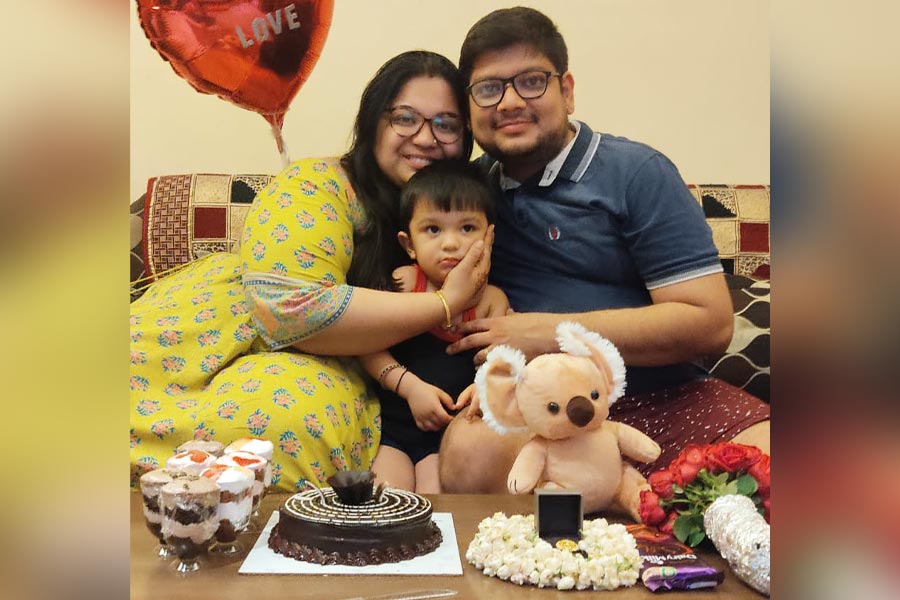
Hardick with his wife and child
Six months later, he got married. His wife noticed Hardick’s desire to honour his mother’s memory, and encouraged him to quit his job. In January 2020, he finally put in his papers.
He started his own management consultancy company in Tollygunge, with eight employees. Soon, COVID struck, and he used all his savings to pay salaries for the first six months. No work was coming in, and his son was barely a year old. To keep afloat, he took up petty jobs and wrote certificates. Once the lockdowns relented, he dove into work in full swing. Within two years, he opened branches in Patna and Agartala, and shifted his main office to Bhowanipore.
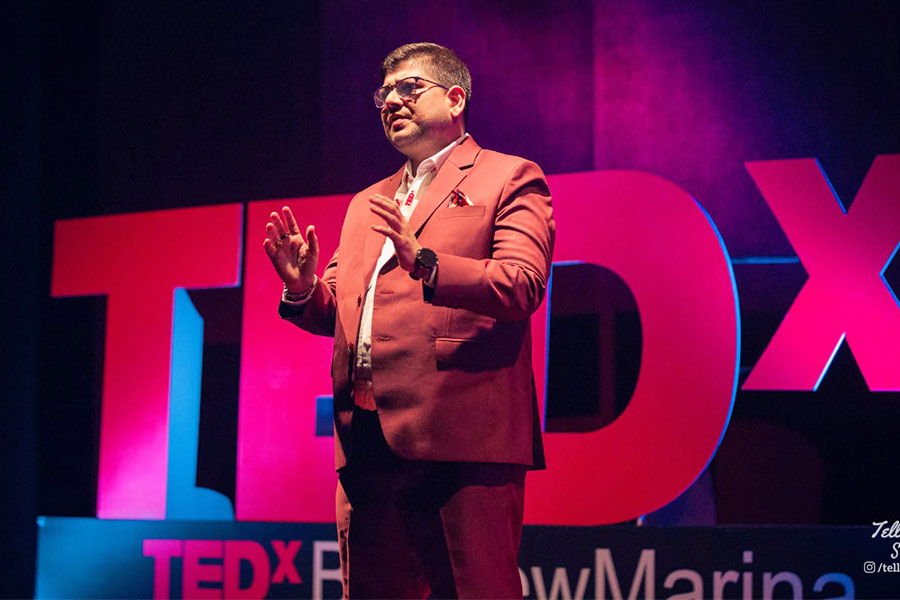
Hardick particularly enjoys motivating students through seminars and TED Talks
Entrepreneurship allowed him to focus on social impact, just as his mother wished. He spends weekends at the Shyambazar Animal Market, rescuing animals and releasing them into the wild. He’s working with friends to set up a school in Canning and is involved in the rehabilitation of sex workers in Sonagachi. Last year, he published his debut novel, Unspoken Truth, and is working on two more books. Hardick particularly enjoys motivating students through seminars and TED Talks. He continues to do all this while battling unimaginable health issues. His next goal is to set up an NGO that runs a hospital.
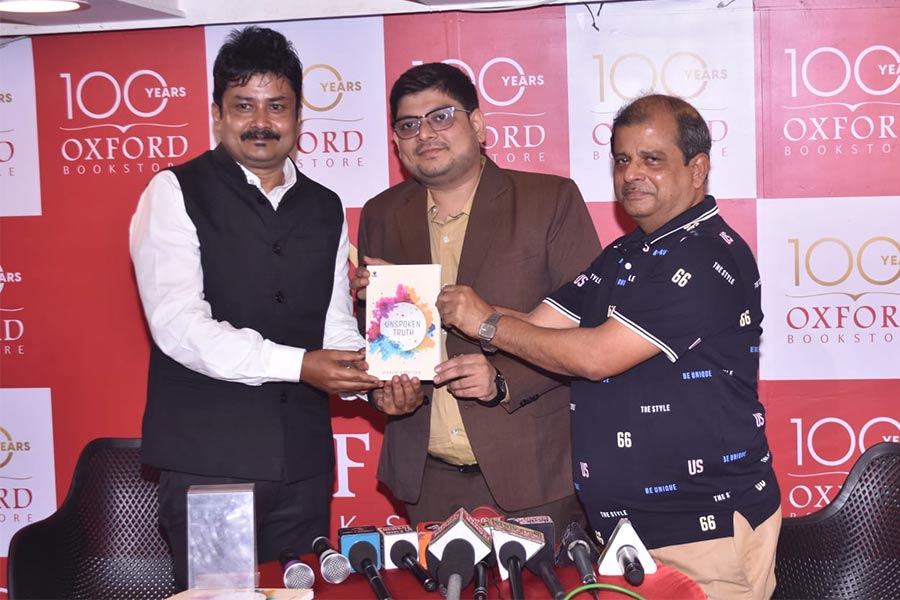
Hardick during the launch of his book, 'Unspoken Truth'
What keeps him going? “Not a day goes by when I don’t wake up with a health issue. But my problems made me who I am. I don’t know how tomorrow will be. I only have today, and I will make the most of it.”
